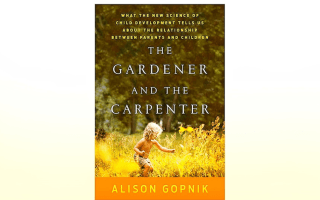Can we talk about mom guilt? The current work from home situation has us drowning in it. We have productivity guilt, guilt from giving our kids too much screen-time, guilt from sending our kids to school, guilt from not sending our kids to school… It’s all overwhelming, but what can we do about it? Telling ourselves to let it go is easy, but a whole other thing to do it. So, how do you deal with all this mom guilt right now?
Letting go of your mom guilt
Just like Dan Siegel, clinical professor of psychiatry and the executive director of the Mindsight Institute, says, “Name it to tame it.” This applies to your guilt as well. Acknowledge your feelings and sit with them. Processing the guilt and exploring the source allows you to work through it. Ignoring negative emotions like guilt and pushing them down only intensifies them and prolongs your agony. Often, talking to a mom friend about it helps you process and understand your feelings. Some experts recommend journaling so you can go over your feelings without judgment but just genuine curiosity.
Replace the guilt with a reminder about your intentions. If your regret is about sending your child to school, remind yourself that you didn’t want your kids to fall behind in their education or that you need to work to support the family. If it’s about your decision to do virtual school, acknowledge that sending your child to school is just outside your comfort zone right now or that it’s because you have an immuno-compromised member of the family. Respect the careful consideration you gave your decision and your decision itself. There is no right or wrong choice. There’s only the decision that’s right for your family at this time.
Dealing with the guilt over giving your kids’ so much screen-time
Limits on screen-time were put in place to help with “health and academic outcomes” (1). Right now, screen-time helps educate and entertain our kids. Because of the negative association, we forget what a blessing screens are right now. While virtual school alone vastly surpasses our usual screen-time limit, it’s such a great tool that connects them to their friends and family at a time when they would be otherwise alone.
Prominent philosophy and psychology professor at the University of California, Berkeley Alison Gopnik, emphasizes the importance of “what children watch and with whom.” She points out that outside of blue light disrupting sleep, screens should not be vilified as a whole. Gopnik uses the example of looking up how bees make honey with her grandson. This activity functions as both educational and one of building a connection between grandmother and grandson. In this way, technology offers an opportunity that would not be otherwise available.
In her book The Gardener and the Carpenter, she compares our fear of screens to the ancient Greek fear of writing by the likes of Socrates (2). He feared that if things were written down, people would no longer have critical debates and lose their ability to memorize things like Homer’s epics. Today we know, the new technology of books needn’t be feared because it didn’t replace but supplemented older forms of learning and culture. We can use technology in the same way.
Dealing with the guilt over the kids being bored
There are advocates for letting your children be bored as well. That’s another thing you shouldn’t feel guilty about. Letting your kids be bored allows them to learn to entertain themselves and become independent.
David Hill, the chair of the American Academy of Pediatrics Council on Communications and Media, elucidates, “We’ve become very uncomfortable with boredom, for adults as well. We’re on the elevator, looking at our phones…The idea that there has to be a thing at all times is pervasive.” However, he explained that when bored, people’s brains “light up like crazy” as creative thought occurs. Some even believe that boredom elevates play creatively.
Dealing with the guilt over your parenting-you’re “good enough”
Understand you are not just doing the best you can, but you are a “good enough” parent. Under this ideology, parents balance fulfilling their children’s needs while also letting them experience small forms of frustration, so they have a real concept of life’s frustrations. We know “good enough” doesn’t sound good enough for your kids though. Dr. Alexandra Sacks, a reproductive psychiatrist, understands, “…it sounds like settling. But striving for perfection sets women up to feel shame and guilt” (3).
If you try to be the perfect parent and give your all and deplete yourself, this does neither of you any good. Clinical psychologist Dr. Becky Kennedy says, “we cannot give out to others what we don’t give in to ourselves.”
This brings us to the most crucial point; check in on yourself. No one else can advocate for yourself better than you. Even your mother or partner can’t measure how depleted you feel. They can guess or sympathize, but they have their struggles as well right now, and only you can give yourself the much-needed respite you need. In this way, you are also teaching your kids to set boundaries for self-care. Dr. Becky recommends you promise yourself that you will do something for yourself every day. She instructs us to make a list and try to do one item off the list each day. If anything, try to do some belly breaths at least to center yourself.
This is not normal
We must also acknowledge what is going on right now. We are in extraordinary circumstances. And, we cannot pretend it’s a normal day in a normal week in a normal year and judge ourselves accordingly. So, if you aren’t doing everything you planned or doing what’s “normal,” recognize you are doing what can be done right now.
We will leave you with this great quote from Eckhart Tolle, “All negativity is caused by an accumulation of psychological time and denial of the present. Unease, anxiety, tension, stress, worry-all forms of fear-are caused by too much future, and not enough presence. Guilt, regret, resentment, grievances, sadness, bitterness, and all forms of non-forgiveness are caused by too much past, and not enough presence.”
Read more posts about Mind where we discuss strategies for maintaining mental balance.
This article is for informational purposes only, even if it features the advice of physicians and medical practitioners. It is not intended to be a substitute for professional medical advice, diagnosis, or treatment and should never be relied upon for specific or personal medical conditions. Your use of the site indicates your agreement to be bound by our Terms of Use and Privacy Policy.
Publications
(1) Coyne, Sarah M. “Parents, You Can Stop Feeling Guilty About Screen Time.” Psychology Today, Sussex Publishers, 21 Apr. 2020, www.psychologytoday.com/us/blog/the-right-media-mindset/202004/parents-you-can-stop-feeling-guilty-about-screen-time.
(2) Gopnik, Alison. The Gardener and the Carpenter What the New Science of Child Development Tells Us about the Relationship between Parents and Children. Picador, 2017.
(3) Sacks, Alexandra. “The Birth of a Mother.” The New York Times, The New York Times, 8 May 2017, www.nytimes.com/2017/05/08/well/family/the-birth-of-a-mother.html.
At Such Is Motherhood, our curated picks are always independently selected. When you buy something through our affiliate links, we may earn a small commission. This does not affect the price you pay and helps us cover the cost of running this site. Sometimes, we provide links solely for your convenience, for which we won’t receive any compensation. Our goal is only to suggest the most notable products. Listed prices may change after publication. See full policy.







